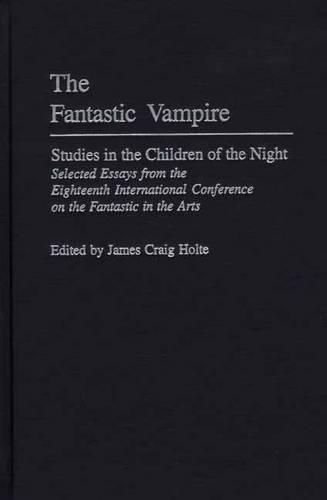
The Fantastic Vampire: Studies in the Children of the Night--Selected Essays from the Eighteenth International Conference on the Fantastic in the Arts
(Hardback)
Publishing Details
The Fantastic Vampire: Studies in the Children of the Night--Selected Essays from the Eighteenth International Conference on the Fantastic in the Arts
By (Author) James Craig Holte
Bloomsbury Publishing PLC
Praeger Publishers Inc
30th March 2002
United States
Classifications
Tertiary Education
Non Fiction
The arts: general topics
Literature: history and criticism
Films, cinema
Folklore studies / Study of myth
Popular culture
700.415
Physical Properties
Hardback
176
Description
Wherever vampires existed in the imaginations of different peoples, they adapted themselves to the customs of the local culture. As a result, vampire lore is extremely diverse. So too, representations of the vampire in creative works have been marked by much originality. In The Vampyre (1819), John Polidori introduced Lord Ruthven and established the vampire craze of the 19th century that resulted in a flood of German vampire poetry, French vampire drama, and British vampire fiction. This tradition culminated in Bram Stoker's Dracula (1897), which fixed the character of the Transylvanian nobleman as the archetypal vampire firmly in the public imagination. Numerous films drew from Stokers novel to varying degrees, with each emphasizing different elements of his vampire character. And more recent writers have created works in which vampirism is used to explore contemporary social concerns. The contributors to this volume discuss representations of the vampire in fiction, folklore, film, and popular culture. The first section includes chapters on Stoker and his works, with attention to such figures as Oscar Wilde and Edvard Munch. The second then looks at such modern writers as Anne Rice and Chelsea Quinn Yarbro who have adapted the vampire legend to meet their artistic needs. A final section studies contemporary issues, such as vampirism as a metaphor for AIDS in Killing Zoe.
Author Bio
JAMES CRAIG HOLTE is Associate Professor of English at East Carolina University.
